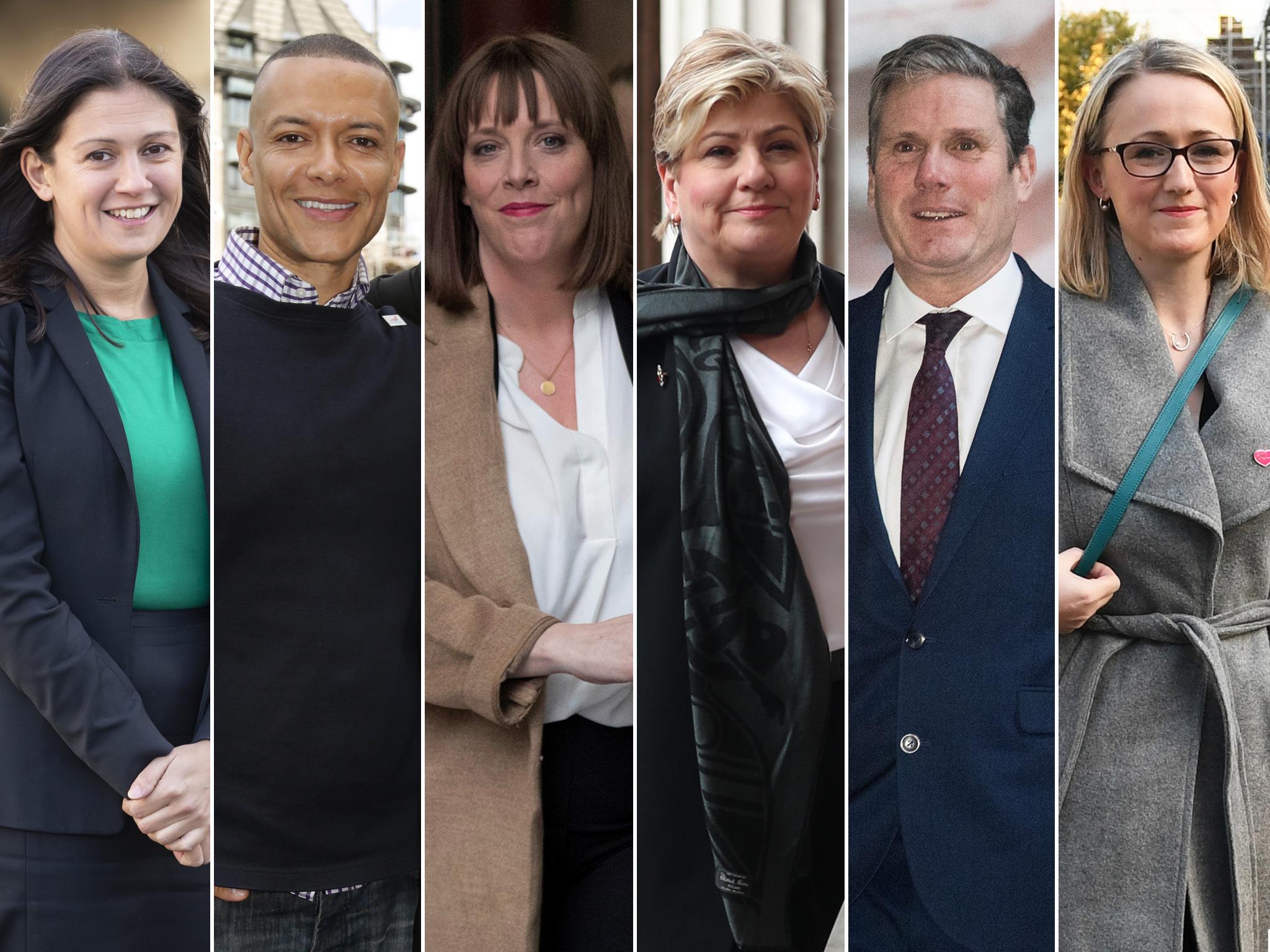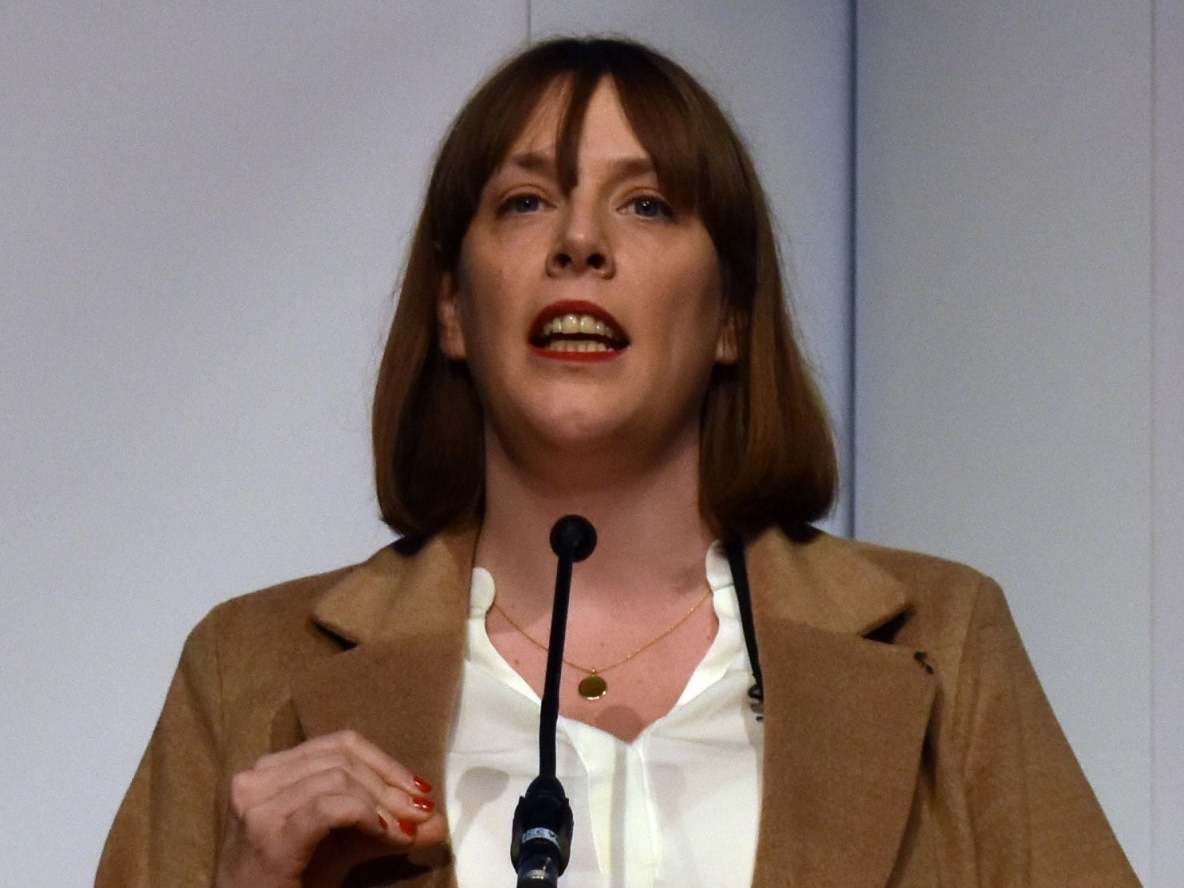Labour needs leader who can connect with ordinary people or risk losing more seats to Boris Johnson, Jess Phillips warns
Exclusive: New poll shows Keir Starmer is public’s favourite to replace Jeremy Corbyn

Your support helps us to tell the story
From reproductive rights to climate change to Big Tech, The Independent is on the ground when the story is developing. Whether it's investigating the financials of Elon Musk's pro-Trump PAC or producing our latest documentary, 'The A Word', which shines a light on the American women fighting for reproductive rights, we know how important it is to parse out the facts from the messaging.
At such a critical moment in US history, we need reporters on the ground. Your donation allows us to keep sending journalists to speak to both sides of the story.
The Independent is trusted by Americans across the entire political spectrum. And unlike many other quality news outlets, we choose not to lock Americans out of our reporting and analysis with paywalls. We believe quality journalism should be available to everyone, paid for by those who can afford it.
Your support makes all the difference.Labour risks losing swathes more seats at the next election and being consigned to opposition for as long as 20 years unless it picks a new leader who is able to connect with ordinary people in a language they understand, Jess Phillips has warned.
Putting her own personality at the heart of her drive to overhaul frontrunners Keir Starmer and Rebecca Long Bailey, the Birmingham Yardley MP said that authenticity and the ability to engender trust will be the key requirements for a leader who has to take on Boris Johnson, with his proven ability to woo voters from across traditional divides.
Her comments came as a BMG poll for The Independent confirmed Starmer as public favourite to succeed Jeremy Corbyn on 4 April, with 16 per cent support, against 7 for Phillips and 5 for Long Bailey. Among Labour voters, the shadow Brexit secretary took 25 per cent, with Long Bailey on 8 and Phillips 7.
Starmer used his official campaign launch in Manchester to issue a promise to unify the party, declaring: “Factionalism has got to go.”
In a bid to see off accusations from fans of the outgoing leader that he is a “centrist” committed to tearing up Corbyn’s legacy, Starmer said he would take the 2017 manifesto as the “foundational document” for his agenda.
And he insisted: “We are not going to trash the last Labour government, but nor are we going to trash the last four years. Jeremy Corbyn made our party the party of anti-austerity and he was right to do so. He made us the party that wanted to invest more heavily in our public services, and he was right to do and we must retain that.”
But he suffered a setback, as the steering group of the Corbyn-backing Momentum movement agreed to ballot members on a recommendation to back Long Bailey for leader and Angela Rayner as deputy.
A Momentum spokesman said: “Our coordinating group believe Rebecca Long Bailey is the only viable candidate who will build on Labour’s vision for the future, deepen democracy in the party and unite all of our heartlands at the next election.”
Robert Struthers, head of polling at BMG, said: “Starmer’s relative popularity with the wider public is of little immediate importance. Winning the support of the Labour membership will, of course, be the first hurdle for each of the candidates. However, given that Labour have failed to win a general election on the last four occasions, the wider appeal of the eventual winner will obviously have consequences when the next election eventually comes around.
“That being said, one must remember that many candidates are little known to the public, so have considerable potential to grow in popularity as the contest develops over the coming weeks and months.”
Speaking to The Independent shortly after securing the necessary nominations from MPs and MEPs to enter the leadership contest, Ms Phillips painted a grim picture of the party’s prospects if it makes the wrong decision on the succession.
“We need a 1997-size swing to draw a majority of one,” she said. “Do I think it’s possible? Absolutely, I think it’s possible. Do I think it’s gonna be really, really hard? Yes.”

She warned that last month’s election may not be the nadir of the party’s fortunes: “If Labour picks a leader that is unable to connect with ordinary people, that is unable to properly fight against the tactics that Johnson will use, that is unable to engender trust in the public, my fears are that we will lose more seats.
“There are 100 Labour MPs with a majority of less than 10,000, and Boris Johnson has shown himself to be a pretty doughty campaigner and they will be doing everything they can to make further gains, so my fear is that it will be worse than the worst result since 1935.”
Even on a better scenario, choosing a leader who failed to enthuse voters could see Labour make merely incremental gains over the next 20 years, rather than the decisive breakthrough needed to overturn Johnson’s 80-seat majority, she suggested.
Ms Phillips insisted she would be willing to serve in the shadow cabinet of any of her leadership rivals – also including Lisa Nandy, Emily Thornberry and Clive Lewis – and to have them in hers.
But she left no doubt of her confidence that she has the “magical” touch that will allow her to transform Labour’s appeal to voters.
“The thing that differentiates me from many of them is that I am able to cut through to the public,” she said. “To actually be able to engender in people that you’re on their side is magical in politics.
“If there’s one thing I definitely can do is I can engender trust and connection in people within literally a matter of seconds.”
And she added: “The whole point is that we have to get the country to trust us. I get that I’m a bold choice… but we’ve got to beat Boris Johnson.”
The 38-year-old, who has won a national profile while remaining on the backbenches for her four years as an MP, brushed aside suggestions that she was bent on self-promotion, pointing to work she has done across parliament on protections for domestic violence as a sign that she could be a “team player”.
“I haven’t been on the front bench, but I have managed to both change policy, get the opposition to listen to me and to fear me, and – much more importantly – reach the country from the third row,” she said. “Imagine what I could do from the front row.”

While it was “deeply embarrassing” that Labour had never had a woman leader, and the party needed to rebuild support outside London, the leadership should not be decided on that basis, she said.
“I don’t think that Keir Starmer connects with the country in the way that I do, but not because he’s from London,” she said. “People don’t care what the postcode is as long as you’re going to provide a good school, a doctor’s appointment and they’re going to feel safe in their homes, they couldn’t give a toss.”
Phillips made clear she would make the environment a major priority as leader, and revealed she would push for Britain to back changes to allow those fleeing the effects of climate change to qualify for refugee status – something that could lead to victims of rising sea levels being admitted to the UK.
“I think that we’ve got to recognise the issue of those who are going to be displaced by climate crisis,” she said. “That doesn’t mean I think that every single person from Bangladesh should move to Britain. What I’m saying is that Britain has to have a compassionate proportionate policy on refugees and they of course should be included within that.”
BMG questioned 1,508 voters between 8 and 10 January.
Join our commenting forum
Join thought-provoking conversations, follow other Independent readers and see their replies
Comments